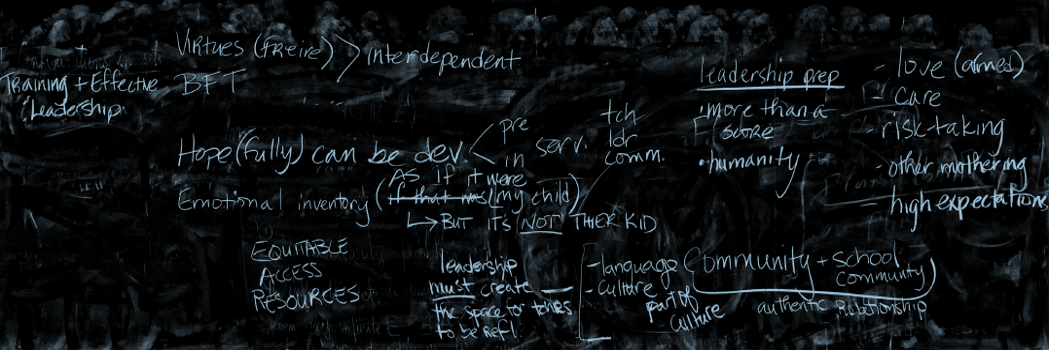One of the ideas from this week’s reading that really stuck with me was that of “armed love”. Freire (2005) notes that there must be a “lovingness” both towards students, but also for the work or practice of teaching. He writes, “It is indeed necessary, however, that this love be an “armed love,” the fighting love of those convinced of the right and the duty to fight, to denounce, and to announce.” (Freire, 2005, pg. 209) This description of armed love reminded me of the markers of critical care uplifted by Wilson including “empathy, compassion, advocacy, systemic critique, perseverance and calculated risk-taking for the sake of justly serving students and improving schools.” (Wilson, 2011) It also reminds me of the Black Lives Matter principle of Loving Engagement. This principle calls on us to embody and practice “ justice, liberation, and peace in our engagements with one another.” (https://blmedu.wordpress.com/guiding-principles)
The descriptions of armed love, critical care, and loving engagement has me thinking about love as a practice in the context of education in the following ways:
- Love through Nurture
- How are we creating spaces and engaging in interactions with students, educators, school workers and families that are compassionate, empathetic, welcoming, inclusive, supportive and thoughtful?
- How are we creating spaces and engaging in interactions that affirm and take care of the true selves, hearts, minds, bodies, spirits and talents of every child, educator and family member?
- How can we build a school culture focused on nurture and wellness?
- Love through Community
- How are we building spaces that prioritize collaboration, cooperation, and collectivism?
- How do we ensure that all voices are heard and honored?
- Love through Curriculum and Instruction
- What does love look like in the form of curriculum and instructional practice?
- How can we make students feel loved and cared about through our curriculum and instructional practice?
- How does culturally-responsive pedagogy and practice manifest as love in classrooms?
- Love through Resistance and Advocacy
- How are we pushing back on policies, practices and curriculum that are harmful, both in our respective schools, but also in the larger school systems?
- How are we organizing and activating towards policies, practices, and curriculum that honor the identities, lived experiences, needs and wants of students, educators and families?
- How are we addressing oppression and centering the agency of students and families?
A few questions that are lingering for me include:
- How do we get to the educational spaces and experiences that students, families, educators, and other school workers deserve when all of those with a stake cannot agree on what is right, what to fight for, what to denounce and what to announce?
- How can expressing “armed love” be sustainable in our current climate given the demands of teaching, ongoing learning and growth, family engagement, organizing and political activism?




Tarilyn, I really appreciate you making the connection to Black Lives Matter and the principle of Loving Engagement. The term “Love” has never been something I’ve thought about or conceptualized in the work that I do. However, as I’ve learned through the readings love is at the forefront of the work that I do. Doing what is right by the student’s often times conflicts with or goes beyond the barriers that have been established in working with Black and Latin X communities. In order for “Armed Love” to be sustainable despite our current climate, I think “Armed Love” and all the mutual principles must constantly be brought up. We must constantly highlight examples of “Armed Love” just as Rivera McCutchen (2019) did while showcasing the work of Jamal Bowman. Examples of “Armed Love” must be highlighted, highlighted, and highlighted again just as Dewey is, just as Horace Mann is, and just as other mediocre “education contributors” are. “Armed Love” will only be a sustainable practice if we indoctrinate educators on the principles of such love.